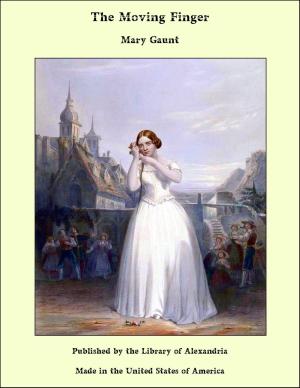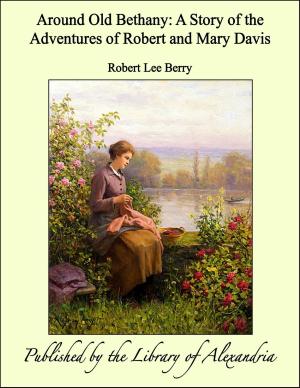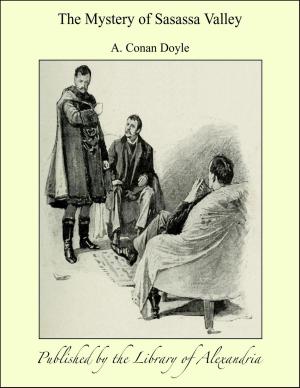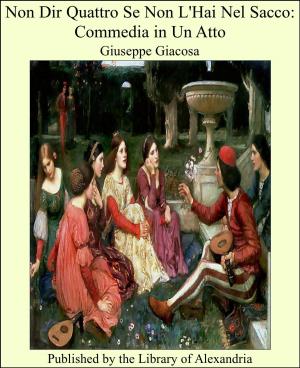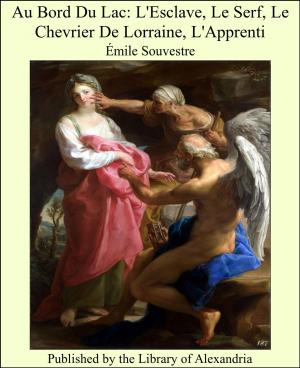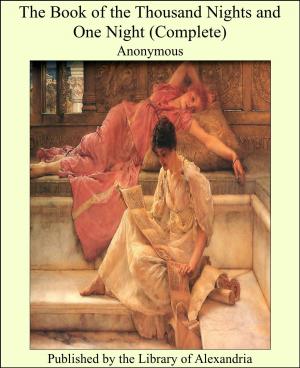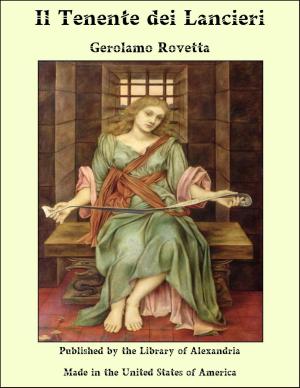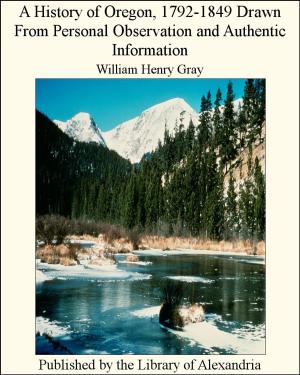| Author: | Padraic Colum | ISBN: | 9781465538574 |
| Publisher: | Library of Alexandria | Publication: | March 8, 2015 |
| Imprint: | Language: | English |
| Author: | Padraic Colum |
| ISBN: | 9781465538574 |
| Publisher: | Library of Alexandria |
| Publication: | March 8, 2015 |
| Imprint: | |
| Language: | English |
I have been asked to say something about the intentions and ideas that underlie the three short plays in this volume. These plays were conceived in the early days of the Irish National Theatre. I had been one of the group that formed the National Theatre Society and I wrote plays for players who were my colleagues and my instructors; I wrote them for a small, barely-furnished stage in a small theatre; I wrote them, too, for an audience that was tremendously interested in every expression of national character. "The Land" was written to celebrate the redemption of the soil of Ireland—an event made possible by the Land Act of 1903. This event, as it represented the passing of Irish acres from an alien landlordism, was considered to be of national importance. "The Land" also dealt with a movement that ran counter to the rooting of the Celtic people in the soil—emigration—the emigration to America of the young and the fit. In "The Land" I tried to show that it was not altogether an economic necessity that was driving young men and women out of the Irish rural districts; the lack of life and the lack of freedom there had much to do with emigration. "The Land" touched upon a typical conflict, the conflict between the individual and that which, in Ireland, has much authority, the family group. This particular conflict was shown again in "The Fiddler's House." where the life, not of the actual peasants, but of rural people with artistic and aristocratic traditions, was shown. I tried to show the same conflict working out more tragically in the play of middle-class life, "Thomas Muskerry." Here I went above the peasant and the wandering artist and came to the official. I had intended to make plays about the merchant, the landowner, the political and the intellectual leader and so write a chapter in an Irish Human Comedy. But while I was thinking of the play that is third in this volume my connection with the National Theatre Society was broken off. "Thomas Muskerry" was produced in the Abbey Theatre after I had ceased to be a member of the group that had founded it
I have been asked to say something about the intentions and ideas that underlie the three short plays in this volume. These plays were conceived in the early days of the Irish National Theatre. I had been one of the group that formed the National Theatre Society and I wrote plays for players who were my colleagues and my instructors; I wrote them for a small, barely-furnished stage in a small theatre; I wrote them, too, for an audience that was tremendously interested in every expression of national character. "The Land" was written to celebrate the redemption of the soil of Ireland—an event made possible by the Land Act of 1903. This event, as it represented the passing of Irish acres from an alien landlordism, was considered to be of national importance. "The Land" also dealt with a movement that ran counter to the rooting of the Celtic people in the soil—emigration—the emigration to America of the young and the fit. In "The Land" I tried to show that it was not altogether an economic necessity that was driving young men and women out of the Irish rural districts; the lack of life and the lack of freedom there had much to do with emigration. "The Land" touched upon a typical conflict, the conflict between the individual and that which, in Ireland, has much authority, the family group. This particular conflict was shown again in "The Fiddler's House." where the life, not of the actual peasants, but of rural people with artistic and aristocratic traditions, was shown. I tried to show the same conflict working out more tragically in the play of middle-class life, "Thomas Muskerry." Here I went above the peasant and the wandering artist and came to the official. I had intended to make plays about the merchant, the landowner, the political and the intellectual leader and so write a chapter in an Irish Human Comedy. But while I was thinking of the play that is third in this volume my connection with the National Theatre Society was broken off. "Thomas Muskerry" was produced in the Abbey Theatre after I had ceased to be a member of the group that had founded it




